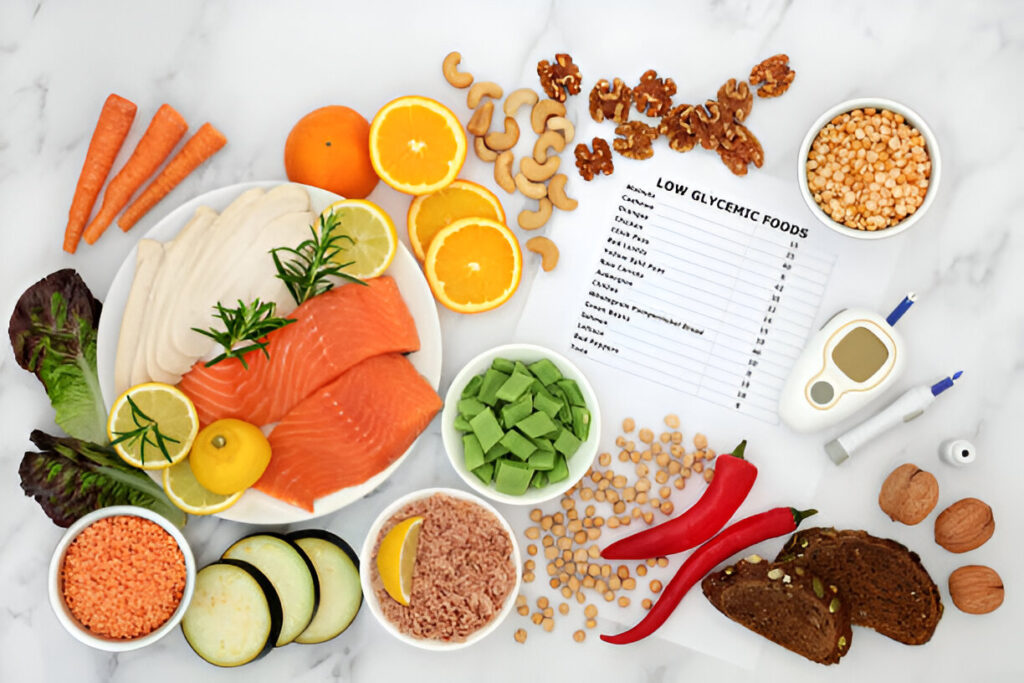
Are you looking to transform your eating habits but feeling overwhelmed by conflicting diet advice? You’re not alone. Today, we’ll explore a practical approach to low-carb, high-protein eating that’s sustainable and beginner-friendly.
Understanding the Basics
Beginning a low-carb, high-protein diet doesn’t have to be complicated. According to Dr. Sarah Martinez, a nutritionist at Stanford University, “The key is starting gradually and finding a sustainable approach that works for your lifestyle.” Source: Stanford Nutrition Studies Forum
What Makes This Diet Different?
Unlike traditional diets that focus solely on calorie restriction, a low-carb, high-protein approach helps regulate blood sugar levels while preserving muscle mass. Research published in the Journal of Nutrition suggests that this combination can lead to more sustainable weight loss outcomes. Source: Journal of Nutrition, 2023
Getting Started: Your First Week
Monday-Wednesday: The Transition Phase
- Gradually reduce processed carbs
- Increase protein intake at each meal
- Focus on whole foods
Thursday-Sunday: Building New Habits
- Implement meal prep strategies
- Track your energy levels
- Stay hydrated
Pro Tip: According to fitness coach Mike Thompson (@thompson_fitness), “Start by swapping one meal at a time rather than overhauling your entire diet overnight.”
Building Your Meal Plan
Breakfast Options
- Greek yogurt parfait with berries and nuts
- Spinach and feta omelet
- Turkey and avocado roll-ups
Lunch Ideas
- Grilled chicken salad with olive oil dressing
- Tuna lettuce wraps
- Turkey and cheese roll-ups with cucumber
Dinner Suggestions
- Baked salmon with roasted vegetables
- Lean beef stir-fry with bell peppers
- Chicken breast with cauliflower rice
Shopping Guide & Kitchen Prep
Essential Ingredients
- Protein Sources
- Chicken breast
- Wild-caught fish
- Eggs
- Greek yogurt
- Lean beef
- Low-Carb Vegetables
- Spinach
- Broccoli
- Cauliflower
- Zucchini
- Bell peppers
- Healthy Fats
- Avocados
- Olive oil
- Nuts and seeds
- Coconut oil
Common Challenges & Solutions
Challenge #1: Carb Cravings
Solution: According to registered dietitian Emma Wilson, “Include small portions of complex carbs like sweet potatoes or quinoa in your dinner to help manage cravings.” Source: Nutrition Today Magazine
Challenge #2: Social Situations
Solution: Plan ahead and check restaurant menus online. Many establishments now offer low-carb options.
Success Stories & Expert Insights
Sarah J., 34, shares her experience: “I lost 30 pounds in 6 months following this approach. The key was meal prepping and joining online support groups.” Source: Low-Carb Living Community Forum
Dr. James Chen, MD, adds: “The success of low-carb, high-protein diets often comes down to sustainability and proper nutrient balance.” Source: Medical Nutrition Journal
Tips for Long-Term Success
- Track Your Progress
- Use apps like MyFitnessPal
- Take progress photos
- Keep a food journal
- Join Support Communities
- Reddit’s r/lowcarb community
- Facebook groups for meal inspiration
- Local fitness meetups
- Adjust As Needed
- Listen to your body
- Modify portions based on activity level
- Consider working with a nutritionist
Frequently Asked Questions
1. How many carbs should I eat daily on this diet?
While individual needs vary, most beginners start with 50-100g of net carbs daily. Dr. Lisa Peterson recommends gradually reducing carbs rather than making dramatic cuts. Source: American Journal of Clinical Nutrition
2. Will I lose muscle mass on this diet?
No, when properly followed with adequate protein intake (0.8-1.2g per pound of body weight), this diet helps preserve muscle mass. Regular strength training is recommended to optimize results.
3. Can I exercise while starting this diet?
Yes, but you might need to modify your workout intensity during the first 1-2 weeks as your body adapts. Personal trainer Mark Johnson suggests starting with light cardio and gradually increasing intensity.
4. What about supplements?
While whole foods should be your primary source of nutrients, consider consulting with your healthcare provider about:
- Magnesium
- Potassium
- Omega-3 fatty acids
- Vitamin D
5. How do I handle plateaus?
Weight loss plateaus are normal. Certified nutrition coach Amanda Brown suggests:
- Reviewing portion sizes
- Increasing water intake
- Adding variety to your meals
- Getting adequate sleep
Resources and Community Support
Join these communities for additional support:
The Bottom Line
Remember, transitioning to a low-carb, high-protein diet is a journey, not a race. Focus on progress over perfection, and don’t hesitate to adjust the plan to fit your lifestyle and preferences.
Disclaimer: Always consult with your healthcare provider before starting any new diet plan, especially if you have underlying health conditions or are taking medications.


Can you be more specific about the content of your article? After reading it, I still have some doubts. Hope you can help me.
Thanks for sharing. I read many of your blog posts, cool, your blog is very good. https://accounts.binance.com/register?ref=P9L9FQKY
I don’t think the title of your article matches the content lol. Just kidding, mainly because I had some doubts after reading the article.